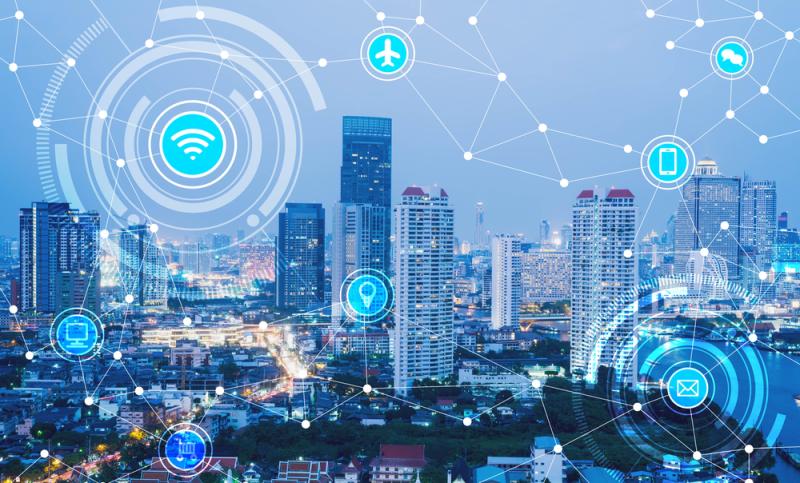Digitization of Infrastructure and Services
A key aspect of any smart city is the digitization and integration of various urban infrastructure and services. This allows city administrators to leverage digital technologies and data to effectively manage various operations. In a smart city, utility networks like electricity, water, and waste management are digitized to enable automated meter reading and monitoring of resource consumption. Street lights, traffic signals and other public infrastructure are connected to centralized control systems for efficient management. Digital platforms help integrate various civic services related to healthcare, education, transportation and more. For example, citizens can access e-governance services like applying for licenses, paying bills and filing complaints online. Emergency response systems leverage real-time data and sensors to coordinate disaster response.
Mobility and Transportation
Modern transportation networks are foundational to Smart Cities. Integrated mobility solutions powered by technologies like GPS, IoT, and cloud computing enable more efficient movement of people and goods. Smart transportation focuses on reducing traffic congestion and travel times. Data-driven traffic management systems optimize signal timing based on real-time traffic patterns. Intelligent transport includes connected vehicles that communicate with traffic infrastructure. Multi-modal public transit is supported through integrated digital ticketing, passenger information systems and dynamic route optimization. Non-motorized mobility options such as bike-sharing find greater uptake in smart cities with coordinated infrastructure and navigation assistance. Emerging technologies like autonomous vehicles and flying taxis promise new opportunities for urban air mobility in the future.
Sustainable Energy Management
Another hallmark of smart cities is sustainable energy management through deployment of renewable sources, smart grids and energy efficiency solutions. Distributed clean energy generation deployments reduce carbon footprint and reliance on polluting fuels. Two-way digital grids supported by technologies like smart meters, energy storage and microgrids enable more effective demand response, outage management and integration of renewables. District-level cogeneration improves overall efficiency. Smart buildings automate lighting, HVAC, appliances to optimize resource consumption based on occupancy patterns. Advanced metering provides energy usage data to promote conservation among citizens. Overall, these initiatives help meet Paris Climate accords and transition to greener urban development models.
Citizen Service and Engagement
Smart city platforms leverage digital technologies to enhance citizen experience and quality of life. Residents have easy access to a variety of services like healthcare, education, employment and recreation through unified portals and mobile apps. Advanced analytics on anonymized data helps city administrators gain insights into pressing civic issues and design evidence-based interventions. Active citizen engagement through social platforms, public feedback mechanisms and crowdsourcing helps address community needs better. Pervasive connectivity through public and private WiFi networks enhances the ease of accessing these services on the go. Advanced command centers use surveillance feeds, sensors and analytics to ensure law and order as well as emergency response coordination. Overall, digital technologies facilitate more transparent, participative and responsive urban governance.
Data-Driven Innovation and Enterprise Growth
Massive amounts of data generated from connected infrastructure and engaged citizens form the lifeblood of smart cities. There is tremendous potential to unlock socio-economic value from this urban data through competitive startups, partnerships and applied R&D. New data-driven services emerge across sectors like health, education, logistics, utilities spearheaded by innovative SMEs incubated in smart cities. Advanced digital infra and talent ecosystems attract global tech giants and foster local entrepreneurship culture. Analytics and AI applied to urban datasets helps optimize city operations, plan future expansion more scientifically and deliver superior citizen services. Smart special economic zones within cities focus on developing future-proof industries at the intersection of tech and physical urban infrastructure creating new high-skilled jobs. Overall, data-led innovation enables smart cities to become talent magnets, business hubs and living labs for emerging technologies.
Security, Privacy and Ethics
While immense opportunities are unlocked with smarter cities, digital transformation also introduces new challenges around cybersecurity, privacy and ethics that need close monitoring and mitigation strategies. Growing surface attack vectors require multi-layered defenses to safeguard citizen data and critical infrastructure from threats like hacking, leaks and ransomware incidents. Strong regulations and compliance are required around data governance, handling and sharing. Anonymization frameworks protect individual privacy while enabling analytics. Ethical principles of transparency, explainability and consent in AI systems allay fears of data and technology being misused. Overall through comprehensive policies, oversight, awareness and responsible innovation efforts, smart cities aim to maximize benefits of technology while minimizing associated risks for citizen trust and social cohesion.
As urbanization continues unabated, smart cities present a sustainable path for cities to advance livability, resilience and shared prosperity through synergies of digital and physical infrastructure. Major greenfield developments as well as redevelopment of existing urban conglomerates increasingly incorporate principles of sustainability, digital access, innovation and liveability at their core. While technological hurdles and socio-economic challenges exist, continued multi-stakeholder partnerships between government, enterprise and community can help actualize the full promise of smart cities to power future growth.
Get more insights on Smart Cities
